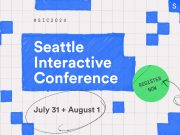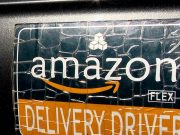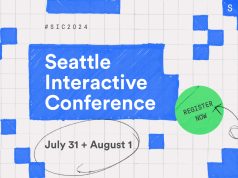Insights by Geoff Colon, Head of Microsoft Advertising Brand Studio, and Aya Kikimova, Digital Advertising Strategist for Microsoft Brand Studio
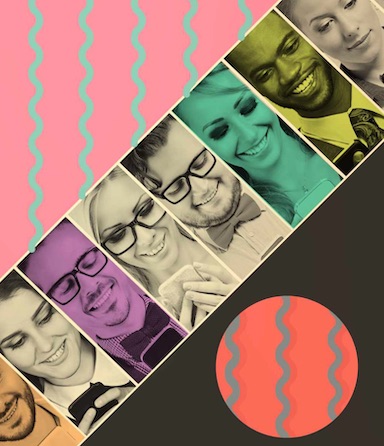
Technology helps empower all of us to achieve more. But technology alone can’t make business decisions for us — people still matter in strategic business management. Our behavior and our motivations, the changing dynamics of communications, technology evolution and the way these forces collide and intersect in our daily lives — all of this has an impact on the business decisions that lead to innovation.
Geoff Colon, head of Microsoft Advertising Brand Studio, and Aya Kikimova, a Brand Studio Digital Media Advertising Strategist have been the brand champions of a marketing manifesto for Microsoft that explores the advertising interactions and messaging that will define the next 10 years of the century.
Their insights can help you discover where the intersections of advertising technology and customer behavior exist, and how these intersections can impact your brand.
“Trust, privacy, data and communications are critical to shaping the future.”
For Microsoft advertising, trust, privacy, data and communications are critical to shaping the future. Geoff and Aya believe that these trends will have the greatest impact for organizations, customers, employees, clients and partners in 2020 and beyond.
Seattle24x7: Welcome, Geoff and Aya. If you choose companies based on their commitment to the social good, should those companies be forthright about how they use their data?

Geoff: During the next decade, consumers will increasingly subscribe to the Betterness Manifesto. Brands will need to shift directions to win them over. For example, brands who support sustainability and produce climate-friendly products will prevail. Even Salesforce CEO Mark Benioff says growth economics may need to be re-imagined. All of this is leading to a movement of “private social trust.”
Aya: We’re beginning to move away from an always-on public existence to a more private world built around personal social circles. In this new world, private chats and messaging zones, and word-of-mouth recommendations are what people will trust.
Seattle24x7: How will brands gain traction in an environment where ad blocking and tracking become the norm?
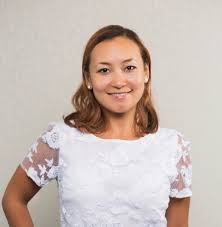
Aya: Tracking and targeting customers will be harder to do well for a few reasons: Stricter regulations around how companies use data, and the rising use of tools and browsers that block ads and tracking.
California, for example, introduced GDPR-like legislation in January called the California Consumer Privacy Act (CCPA), which requires companies to delete customer information if the customer asks them to. This law may give rise to similar legislation across the other 49 states. With more oversight about how businesses use consumer data, targeted marketing will be challenging to implement.
Geoff: Some brands may turn to using highly interactive ads that rely less on engagement in the form of a like or clickthrough and more on the back-and-forth banter between the ad experience and the consumer. Think of an interactive ad asking you to “Choose Your Own Adventure” then responding with additional interaction or next step based on your choice.
“New platforms will create experiences that look more like a personal concierge than an ad.” — Geoff Colon, Microsoft Brand Studio
In search, this type of interaction could begin to replace the practice of clicking through to a web page or content download. New platforms will create experiences that look more like a personal concierge than an ad, leveraging interactivity that makes consumers feel like they’re texting a friend — not being sold something by a brand. Eventually, brands will begin to rebuild the trust they’ve lost and be unblocked.
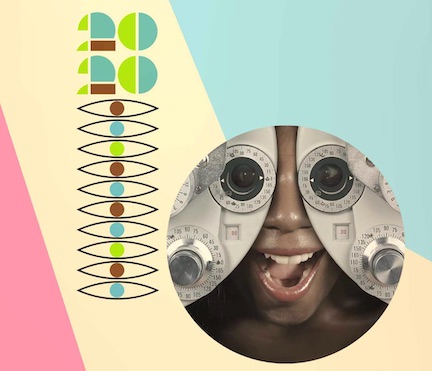
Seattle24x7: What do you anticipate will be the new and emergent media offerings at play in this new era?
Aya: Traditional media (and even original digital media) will mutate, converge and consolidate to create new offerings.
Here’s what we can anticipate:
• Display + Native + Search will converge to build new online advertising solutions that were previously in siloes.
• TV + Online Viewing Behavior will create new programmatic ad targeting within streaming TV menus (Netflix, Hulu, Disney+, etc.).
• Improved Retail Search will enable a new ecommerce landscape.
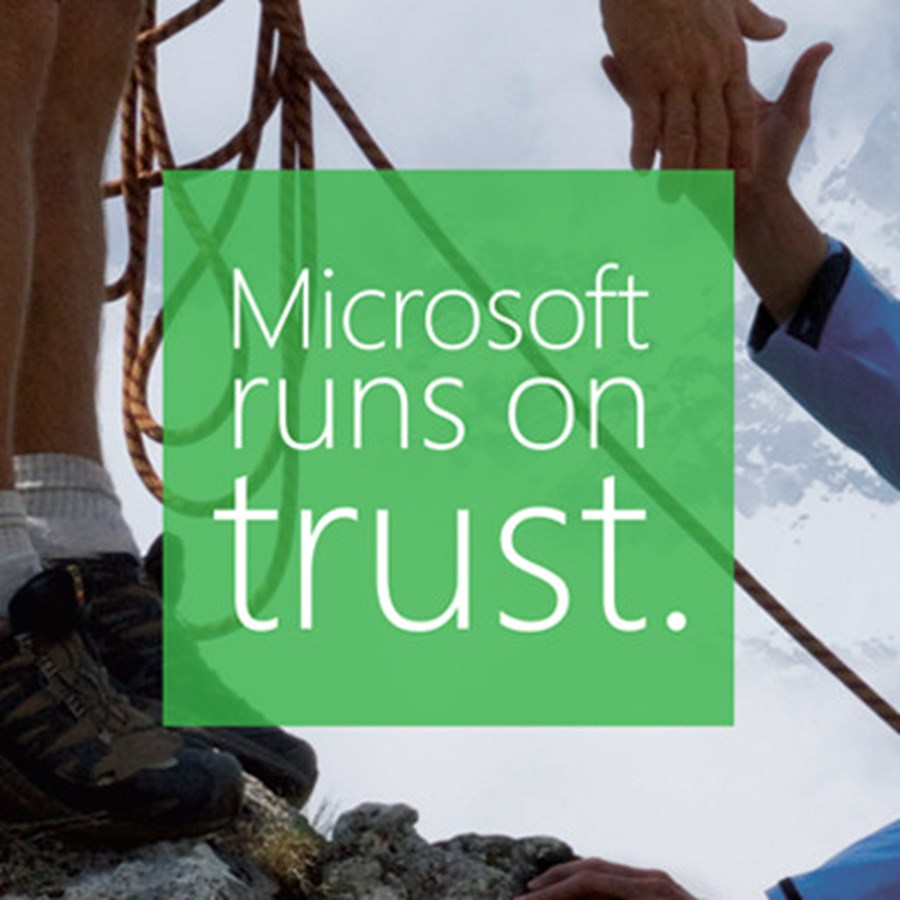
Geoff: These new offerings create a whole new marketplace with their own demand and supply. Streaming entertainment will be the major focus for audience-based buying.
Additionally, media is segmenting into niches, offering consumers diverse perspectives and catering to the edges. Mass media is now out of favor with consumers as a source of personalized and niche/cult media. And although linear TV won’t die, it will take a back seat to connected TV, where almost anyone can start and program a channel.
The 2010s trend, two microphones and a Wi-Fi signal, will continue to have influence in the coming decade. More relevant and targeted advertising will be possible on streaming TV because data on the backend will enable high-performing ads to be delivered to extremely targeted audiences. A mashup of search, audience-based buying and news content will fuel many of the evolving platforms to watch.
Seattle24x7: At the Microsoft Advertising Brand Studio you talk a lot about the Customer Experience Quotient. How would you describe it?
Aya: The Customer Experience Quotient – CXQ, speaks to the ability to understand the buyer journey and then improve marketing based on that understanding.
The cream of the crop — the 20% of respondents who we deemed High CXQ Performers — call upon a blend of the right data strategy and advanced technologies like AI, machine learning and cloud solutions to unleash their creativity. Most importantly, these marketers increase their marketing ROI/ROAS by 45% or more!
Geoff: This particular metric is becoming more important as the rise of AI and intelligent assistants impacts ad delivery systems. Top choices, as determined by AI-powered search algorithms, will become the default consumer favorites and allow those who develop for AI to win entire digital marketplaces.
The “Betterness” Manifesto
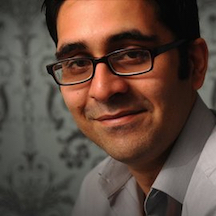
Umair Haque is director of the Havas Media Lab and author of The New Capitalist Manifesto and Betterness.
“The global economy faces a series of tectonic structural shifts. The great gears of this vast machine must be reset over the next decade. Consumption must fall. Savings must rise. Investment must be more productive. Incomes and wealth must be shared more broadly. Borrowing from tomorrow must slow. The rate at which we value the future must grow. Growth itself must be revitalized.
Think of it as a great reboot of prosperity itself. How will it happen? Who will reset these great gears? Institutions are the “dials” that tune the gears, that set the rates. Exurbs, corporations, arms-length exchanges, industries, resources, “profit”, and “GDP“. All that’s the stuff of the industrial era. Yet those are the institutions that still surround us today. A better kind of prosperity demands a new set of institutions. New kinds of cities, companies, communities, markets, capital, contracts, growth (to name just a few).
It’s up to each of us to build them. Want betterness? Betterness doesn’t begin with Ben Bernanke, Lloyd Blankfein, or Anderson Cooper. It begins with you. Creating a better 21st century means choosing to stop living in the 20th century.
Here are eight ways to kick start betterness:
Invest. More specifically, stop investing in corporations that don’t do good. Put your money where your mouth is and support companies that are, yes, profitable, but that profit by doing meaningful stuff that matters the most. Stop investing in bad, start investing in good. The key word here isn’t good, it’s investing: take an interest, engage, put your money to work for the long haul. Stop speculating by the Jim Cramer style nano-second.
Allocate. It’s a mystery why so many keep their money parked in big banks that bleed them dry through bailouts. Move your money to a better bank, a local bank, a community bank, a bank that hasn’t needed a bailout, or a totally new kind of bank, like BankSimple. Switching costs are low and the benefits are clear.
Cut. “Consume” less. Do you really need another pair of designer jeans, three soy mocha Frappuccinos a day, or a bigger TV? Really? Betterness happens not through naked, aggressive consumption of disposable, mass-produced stuff, but by learning to spend your hard-earned cash on smaller amounts of awesome stuff that’s made with love, ethics, and passion.
Work. You’re worth something. Stop giving your talent away to organizations that misallocate it, underutilize it, and possibly even abuse it. If you’re doing something meaningless, quit. Betterness can’t happen if you’re spending your life churning out toxic junk. It can only happen when more meaningful work is done. Find a company that’s better. Better yet, start one. No, it’s not easy. But here’s the thing: over the next decade, the businesses that can’t do better, the ones you’re giving your talent away to, are to go extinct anyway. Cut the cord now, before the axe falls and cuts it for you.
Live. If you’re living somewhere meaningless, move. Exurban sprawl, mega-highways, big-box stores: that was the American Dream in the 20th century. In the 21st, it’s closer to the awesome Richard Florida‘s dream of thriving, tightly-connected communities, that make up vibrant cities. Living somewhere where you’re forced to, like it’s groundhog day, hit the same old big, lame, toxic businesses, over and over again? Those places and spaces were built to support an industrial economy. Today, they’re a barrier to letting it crumble and fall. Move somewhere where there’s a local community made up of passionate, talented people, a community you can nurture and that nurtures you. It just might be good for your soul.
Civilize. The Dark Mountain folks think the big problem in the world today is civilization and that we need to get radically uncivilized. I think the opposite: we need to get re-civilized. We’ve forgotten what civics means. Join civil society. Become a volunteer. Mentor someone. Get involved with a local non-profit. Do something that has, in the parlance of economists, positive externalities: an activity that benefits others more than it benefits you. The basis of civilization is not naked self-interest, it’s shared interest.
Support. Support what you think matters. Want a thriving democracy? Buy a newspaper. Want haute couture? Stop buying fast fashion. Want green energy? Invest in going off-grid. Every choice you make with your money, time, and effort reflects your true support for betterness.
Reflect. The 20th century was built never to allow room for reflection, only work. Take time out, no matter what. Pick a favourite place, a café, restaurant, park, or avenue. Hang out and reflect. What would betterness mean in your life? How are you helping betterness happen? How could you help betterness happen? Without time to reflect on those questions, and explore and refine your own answers, none of the above can happen.” [24×7]
Seattle24x7: Can you explain the difference between a Unicorn and a Zebra, metaphorically speaking?
Geoff: Disruptive models from the 2010s centered around automated design that lacked human elements. As a result, the rise of unicorns may give way to a new model — or animal — that isn’t fictitious: zebras.

Zebras fix what unicorns break by feeding on them and getting stronger. Unicorns have a weakness: they’re all about building fast and realizing big returns. But they literally burn out into non-existence because they’re not built to last. Why? Because unicorns weren’t real in the first place.
But Zebras are real — and built to last. In the 2020s, a company’s business model will be the first domino in a long chain of consequences. In short, “The business model is the message.” From that business model flows company culture and beliefs, strategies for success and end-user experiences that, ultimately, shape society.
New, alternative business models that are at odds with the startup status quo will balance profit and purpose, champion democracy and put a premium on sharing power and resources. Companies that create a more just and responsible society will hear, help and heal the customers and communities they serve.
Aya: Think of our most valuable institutions. Unicorns are rewarded for disrupting them — even razing them to the ground. In the 2020s, the pendulum will swing in support of companies that are built with infrastructure that subscribes to and nurtures this new human-centric philosophy and the technology that empowers it.
The motto of businesses in the 2010s, “Move fast and break things,” (attributed to Facebook’s Mark Zuckerberg) will fade into obscurity. A new phrase, “We have values that are more than ‘grow fast and exit,’” will guide business strategies in the coming decade.

Seattle24x7: You conducted a poll with LinkedIn that global senior marketers identify as the most important for the 2020s. What are they?
Geoff: They are, in order or prominence…
Soft skills:
- Creativity
- Humility
- Empathy
- Adaptability
- Transparency
Hard skills:
- SEO
- Data analysis
- Copywriting
- Behavioral analysis
- Automation
Get intelligently connected to Microsoft Advertising at MicrosoftAdvertising.AI
Check out the Insights with Microsoft podcast on Applications Podcasts, Google Podcasts or Spotify [24×7]


